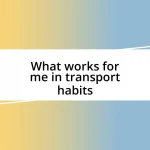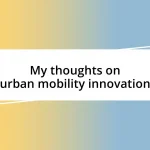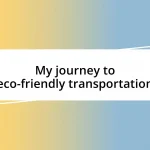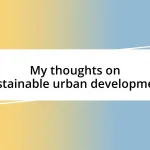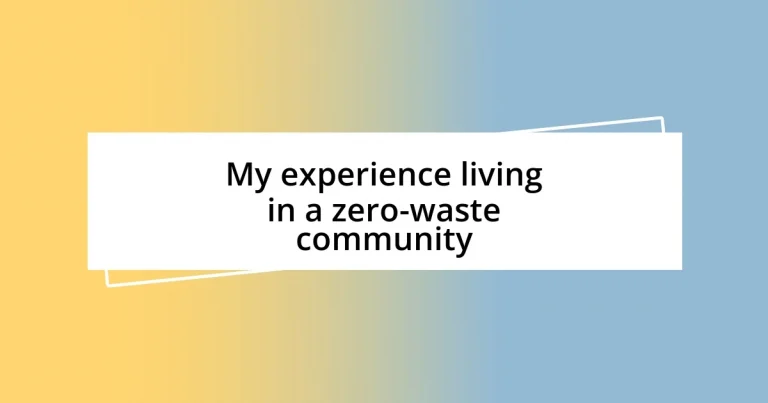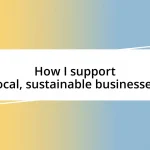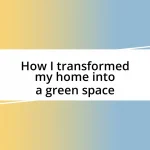Key takeaways:
- The transition to a zero-waste lifestyle promotes mindfulness in consumption, leading to financial savings and stronger community bonds.
- Challenges such as changing ingrained shopping habits and finding waste-free products often require creativity and persistence.
- Community initiatives like gardens, repair cafés, and cleanup events foster collaboration and deepen connections among residents committed to sustainability.
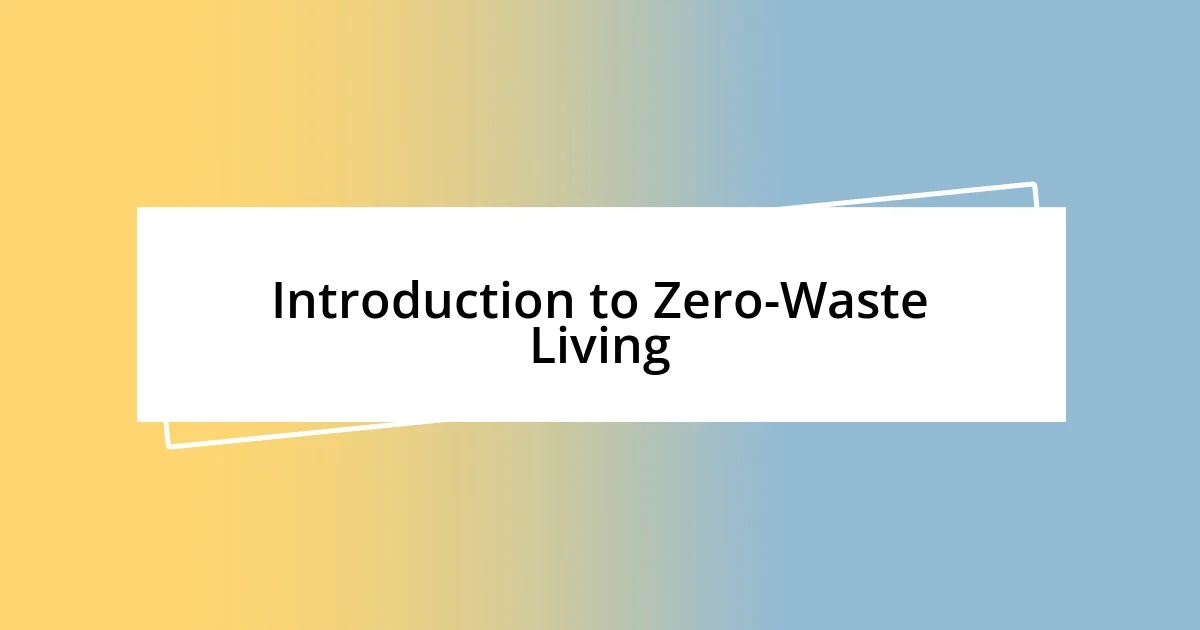
Introduction to Zero-Waste Living
Zero-waste living is more than just a trend; it’s a lifestyle that challenges us to rethink everything we consume and toss away. When I first learned about it, I was overwhelmed by the sheer amount of waste I produced daily. Could my choices really make a difference?
As I embarked on this journey, I found myself more attuned to my habits, consciously choosing products with minimal packaging and reflecting on what truly brought value to my life. I remember my first trip to a local bulk store—it felt like stepping into a treasure trove of possibilities, allowing me to buy only what I needed in reusable containers. The thrill of saving money while reducing waste was a game-changer for me.
Living in a zero-waste community means embracing a culture of sustainability and connection with others who share similar values. I often engage in discussions about composting, upcycling, and sharing resources. It’s heartwarming to see how collective efforts can lead to a meaningful impact on our environment! Have you ever considered how your choices affect the world around you? I can assure you, the journey towards zero waste has not only opened my eyes, but it has also deepened my appreciation for nature and community.
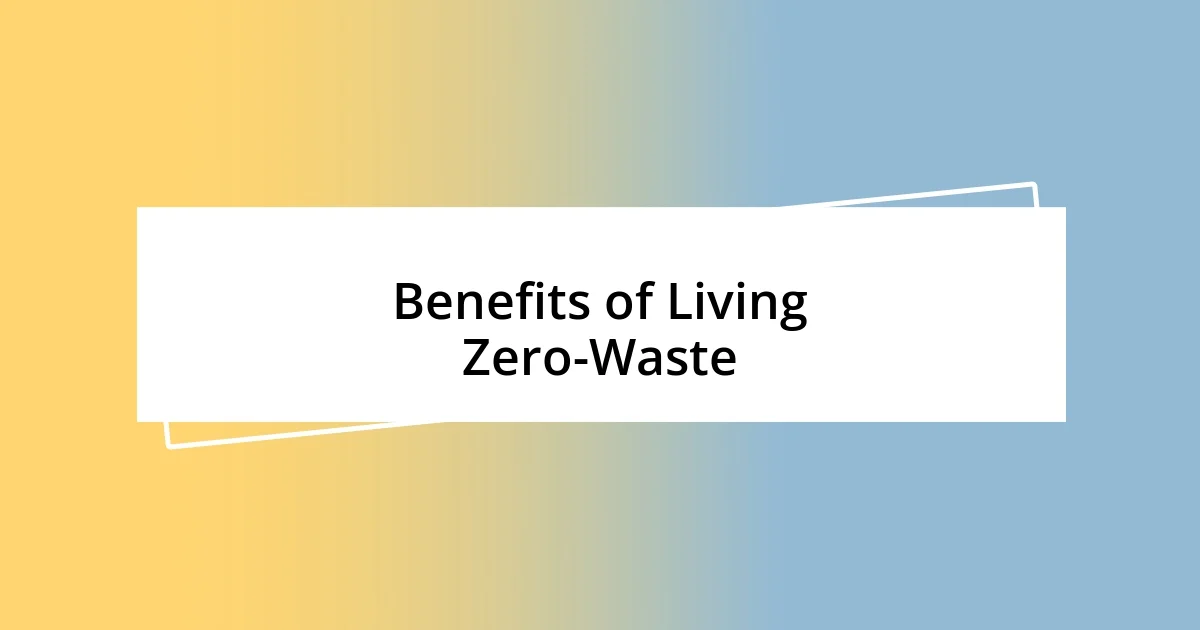
Benefits of Living Zero-Waste
One of the most significant benefits of living zero-waste is the profound sense of fulfillment that comes from simplifying my lifestyle. I vividly recall a Sunday afternoon spent joyfully decluttering my home. As I sifted through items I no longer used, I felt a liberating lightness, as if shedding the physical weight also released mental burdens. It’s remarkable how much clearer my mind feels when surrounded by only the essentials.
Here are some benefits I’ve experienced firsthand:
– Financial Savings: By focusing on buying only what I need, I save money and avoid impulse purchases.
– Reduced Environmental Impact: I’ve witnessed the direct effects of my actions; my waste output has significantly decreased, and it feels empowering.
– Stronger Community Bonds: Joining forces with neighbors for swaps and shared projects has fostered friendships built on shared values.
– Quality Over Quantity: I’ve learned to appreciate high-quality, durable items that serve me well rather than disposable products that clutter my space.
– Mindful Consumption: Each purchase is now a conscious decision, which has heightened my awareness of ethical sourcing and sustainability.
Living zero-waste has not only benefited the environment but has also enriched my life in ways I never anticipated. I often find myself reflecting on how these small changes create ripples of positive impact, both personally and within my community.
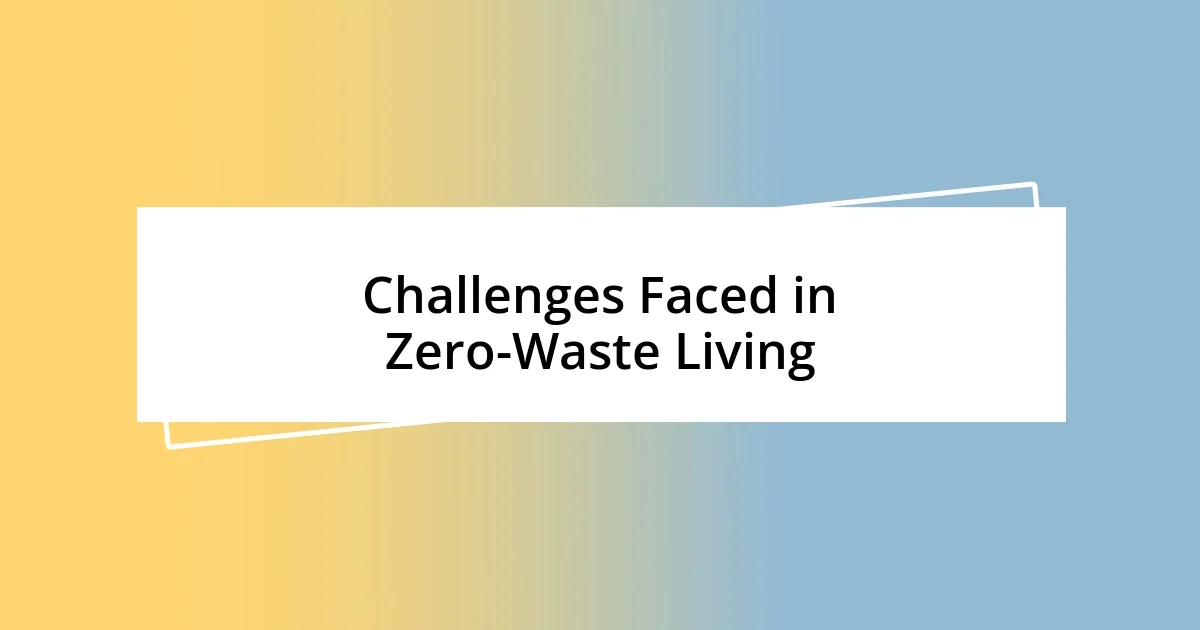
Challenges Faced in Zero-Waste Living
Moving towards a zero-waste lifestyle isn’t without its hurdles. One of the biggest challenges I faced was changing my ingrained shopping habits. At first, I found it daunting to resist the convenience of pre-packaged products—those brightly colored packages were hard to ignore! I’ll never forget the first time I forgot my reusable bags. It felt like a step backward, and I had to really remind myself why I was on this journey.
Another significant challenge is finding products without packaging or with minimal waste. Transitioning away from single-use items meant frequent trips to specialty stores, which aren’t always conveniently located. And, as I navigated this shift, I felt a mix of frustration and determination. I learned to think outside the box, often substituting what I once thought I needed for more sustainable alternatives. Have you ever found yourself getting creative to solve a problem? I certainly have!
Finally, the social aspect of zero-waste living can sometimes feel isolating. Not everyone in my community shares these values, which can lead to awkward situations. I recall a dinner party where I brought my own containers for leftovers, only to realize that my friends had their own ways of storing food. It was a moment that made me question if my choices were understood or even appreciated. Yet, it’s in moments like these that I remind myself of the importance of education and leading by example.
| Challenge | Personal Insight |
|---|---|
| Changing Shopping Habits | Struggling with the allure of convenience, I constantly reminded myself of my core motivations. |
| Access to Waste-Free Products | Adapting my shopping behavior required creativity and persistence—finding alternatives was not easy! |
| Social Isolation | Experiencing misunderstandings at social events highlighted my role in educating others about zero waste. |
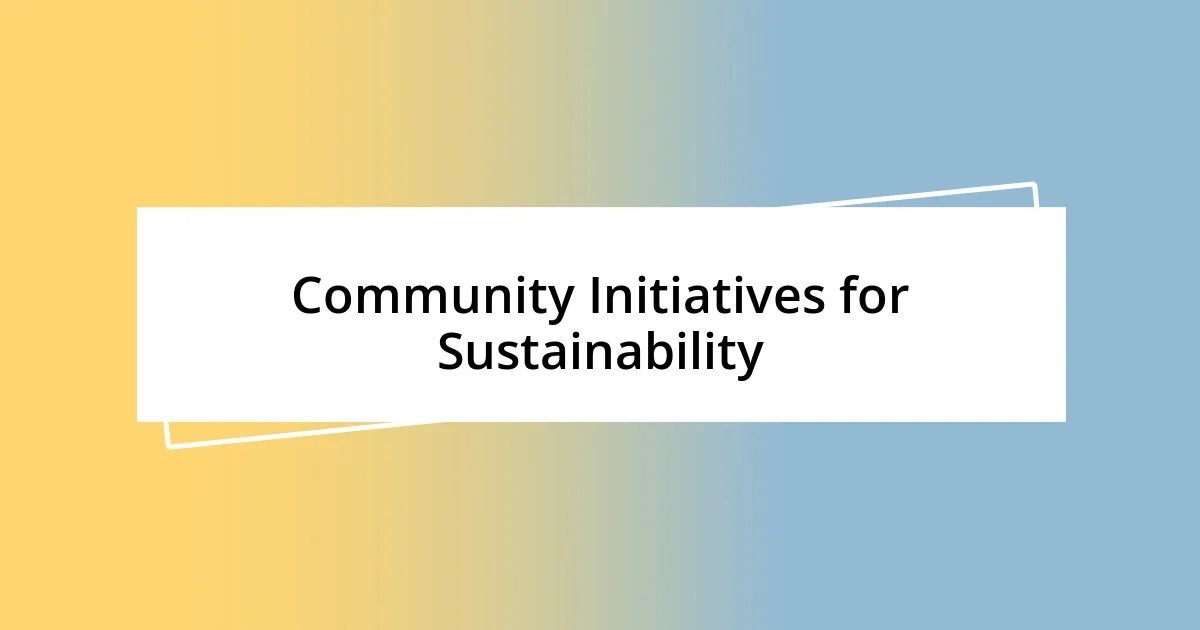
Community Initiatives for Sustainability
I love seeing how community initiatives can truly spark change. One exciting project in my neighborhood was the creation of a community garden. It started with a few passionate residents gathering for a brainstorming session. Together, we transformed a vacant lot into a lush space where we could grow our own fruits and vegetables. I remember the joy of harvesting my first cherry tomatoes—there’s something incredibly rewarding about relishing the fruits of your labor, especially when they come with zero packaging!
Another initiative that inspired me was our local repair café. It’s amazing to witness how many people showed up eager to learn how to mend broken items instead of tossing them away. I brought an old lamp that had seen better days, and while I worked alongside skilled volunteers, I couldn’t help but think: Why did I ever consider sending it to the landfill? That moment reinforced the power of collaboration and knowledge sharing within our community. It reaffirmed my belief that sustainability doesn’t just happen in isolation but thrives on collective effort.
We’re also actively involved in a monthly cleanup event at our local park, and it’s become a wonderful ritual for many of us. The first time I joined, I was struck by how much waste we collected in just a couple of hours. As I picked up litter, I couldn’t help but feel a sense of responsibility. How did we let it get this far? Yet, beyond the disappointment, I felt a deep sense of camaraderie with my neighbors. Sharing the goal of keeping our environment clean made conversations flow effortlessly. Each cleanup not only rejuvenated our park but also strengthened our community bonds. Isn’t it remarkable how these seemingly small actions tie us together?
